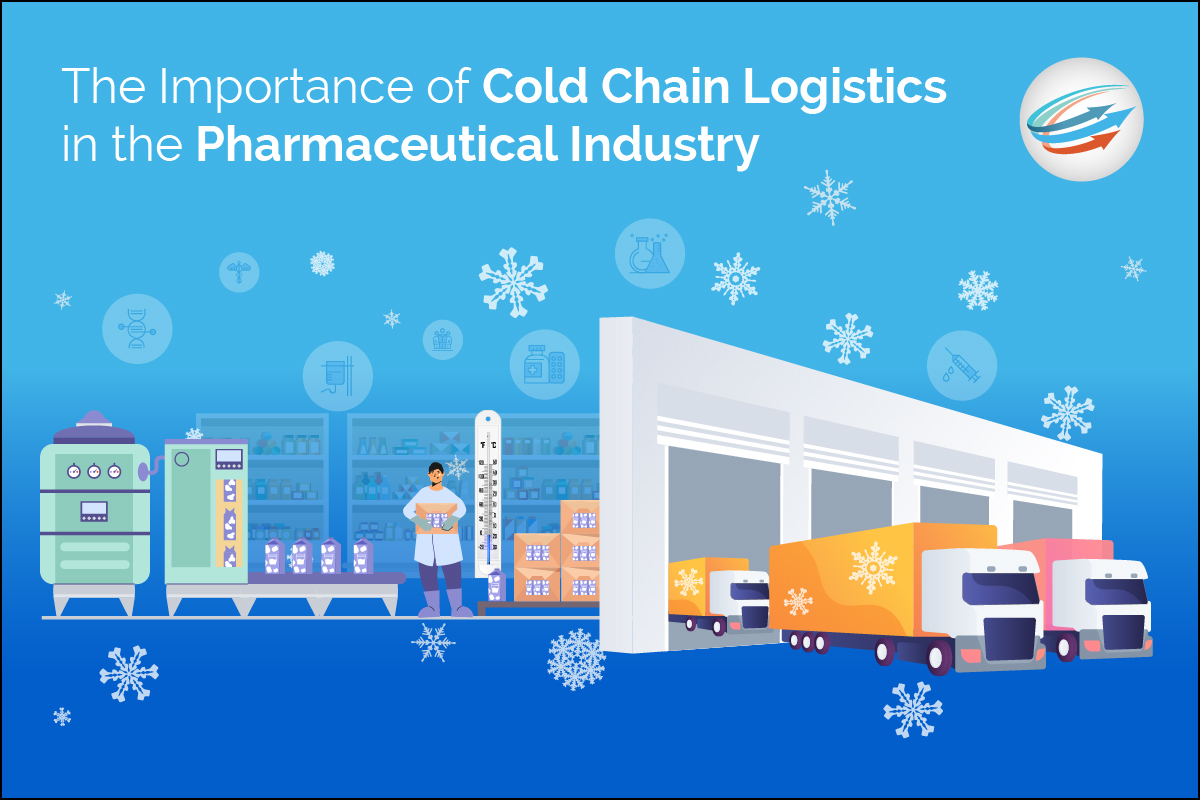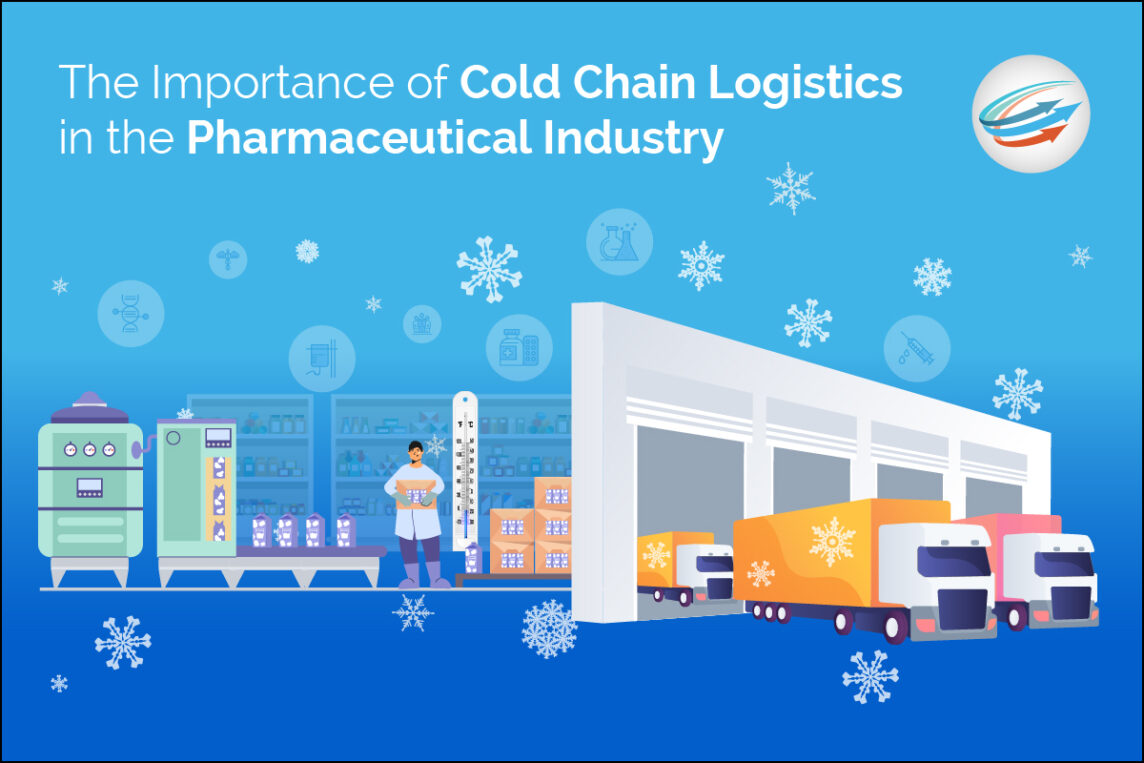
In the fast-paced world of pharmaceuticals, logistics play an essential role in ensuring that life-saving medications reach their destination in perfect condition. With the rise of biotech and temperature-sensitive drugs, the importance of cold chain logistics has never been greater. Imagine losing up to 20% of temperature-sensitive products during transport because the cold chain fails—that’s a significant blow to both the industry and patient care. Cold chain logistics are vital to maintaining the integrity of these products, ensuring they remain effective and safe for use.
Keep reading to learn more about temperature-sensitive pharmaceuticals and the benefits of cold chain logistics in the pharmaceutical industry.
What Is Cold Chain Logistics?
Cold chain logistics refers to a temperature-controlled supply chain designed to maintain the quality and safety of perishable products, from production to delivery. In the pharmaceutical industry, this involves specialized storage facilities, refrigerated transportation vehicles, and real-time monitoring systems to ensure that temperature-sensitive products remain within their required temperature ranges.
The global cold chain logistics market for pharmaceuticals is booming, with expectations to reach around $21.3 billion by 2025, growing at a Compound Annual Growth Rate (CAGR) of 7.5%. This growth underscores the increasing reliance on temperature-controlled logistics to deliver vital medications and vaccines safely and efficiently.
The Role of Cold Chain Logistics in the Pharmaceutical Industry
Cold chain logistics are indispensable for the safe and effective delivery of temperature-sensitive pharmaceuticals like vaccines, biologics, and insulin. Maintaining the correct temperature range is critical, as even minor deviations can compromise the efficacy and safety of these products.
For instance, approximately 80% of vaccines need to be kept within a specific temperature range to remain effective. Unfortunately, the World Health Organization (WHO) estimates that around 50% of vaccines are wasted globally due to inadequate temperature control during transit.
The consequences of temperature excursions can be severe, affecting product efficacy and potentially endangering patient safety. Effective cold chain logistics minimize these risks, ensuring that medications work as intended when they reach patients.
Regulatory Requirements and Standards
Regulatory bodies like the FDA and WHO have established stringent guidelines for pharmaceutical supply chains. Compliance with these regulations is crucial to ensuring that temperature-sensitive products are transported safely and effectively.
Good Distribution Practices (GDP) are among the key requirements for cold chain logistics, outlining the standards for transportation, storage, and handling of pharmaceuticals. Ensuring compliance with GDP helps to maintain product integrity and patient safety.
Technology also plays a significant role in ensuring compliance and monitoring throughout the supply chain. Advanced monitoring systems can track temperature data in real-time, providing valuable insights and ensuring that any deviations are quickly addressed.
Challenges in Cold Chain Logistics
Maintaining cold chain integrity is no easy task. Equipment failures, transportation delays, and other challenges can compromise the quality of temperature-sensitive pharmaceuticals. Nearly 30% of all temperature-controlled shipments are affected by delays, which can jeopardize product quality and efficacy.
The complexity of global distribution adds another layer of difficulty to cold chain logistics. Different countries have varying regulations and infrastructure, making it challenging to maintain consistent temperature control throughout the supply chain.
However, solutions are available to overcome these challenges. Advanced packaging materials, data loggers, and contingency planning can help ensure that temperature-sensitive products remain within their required temperature ranges. These technologies and strategies provide an added layer of protection, minimizing the risk of temperature excursions.
How APS Fulfillment, Inc. Can Help
APS Fulfillment, Inc. specializes in handling temperature-sensitive pharmaceutical products, offering a range of logistics services to ensure that these products are transported safely and efficiently. With expertise in cold chain logistics, we can help pharmaceutical companies maintain the integrity of their temperature-sensitive medications.
Our specialties include:
- Specialized Storage: Facilities designed to maintain specific temperature ranges for pharmaceutical products.
- Refrigerated Transport: Vehicles equipped to transport temperature-sensitive products safely.
- Real-time Monitoring: Advanced systems to track and record temperature data throughout the supply chain.
By partnering with APS Fulfillment, pharmaceutical companies can ensure that their temperature-sensitive products are handled with the utmost care and precision.
Contact APS Today to Maintain the Integrity of Your Temperature-Sensitive Pharmaceuticals
As the global cold chain logistics market continues to grow, the need for robust and reliable temperature-controlled logistics solutions becomes increasingly apparent. By understanding the challenges and implementing advanced technologies and strategies, pharmaceutical companies can ensure that their products reach patients in optimal condition.
If you’re a pharmaceutical company looking to enhance your cold chain logistics, consider partnering with APS Fulfillment, Inc. Our specialized logistics services can help you maintain the integrity of your temperature-sensitive products and ensure that they reach patients safely and effectively.
Book a consultation by calling (954) 582-7450 or email [email protected] to learn more about our healthcare fulfillment solutions and how we can support your cold chain logistics needs.




